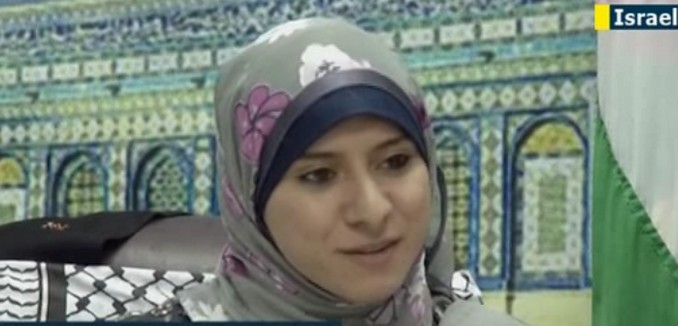The Times of Israel reported today that in an interview with a Lebanese television station (embedded below) Hamas spokeswoman, Isra al-Mudallal, acknowledged that Hamas intimidates journalists.
The Times, citing a translation of the interview provided by the Middle East Media Research Institute (MEMRI), quotes al-Mudallal complaining about journalist who wanted to “[film] the places from where missiles were launched.” She characterized such journalists as “collaborating with the occupation.” Al-Mudallal continued:
These journalists were deported from the Gaza Strip. The security agencies would go and have a chat with these people. They would give them some time to change their message, one way or another.
We suffered from this problem very much. Some of the journalists who entered the Gaza Strip were under security surveillance. Even under these difficult circumstances, we managed to reach them, and tell them that what they were doing was anything but professional journalism and that it was immoral.
A news crew for the Indian television network, NDTV, filmed a rocket being fired near a hotel where journalist were staying. NDTV did not air the report until after its crew had left Gaza.
The intimidation that al-Mudallel recounted is consistent with Hamas’ social media guidelines which warned Gazans “not to post photos of rockets being fired.”
Al-Mudallel’s admission of intimidation further confirms the Foreign Press Association’s (FPA) recent complaint that reporters in Gaza were “harassed, threatened or questioned” by Hamas. Substantiation of the FPA’s accusation comes on the heels of a number of journalists denying that any intimidation took place.
In Why Everything Reported from Gaza is Crazy Twisted, that appeared in the August 2014 issue of The Tower Magazine, veteran foreign correspondent Mark Lavie observed that “[b]rutal intimidation and threats against reporters are so much more effective” than outright censorship.
[Photo: JewishNewsOne / YouTube ]




